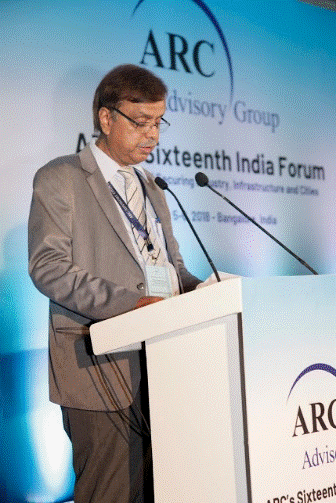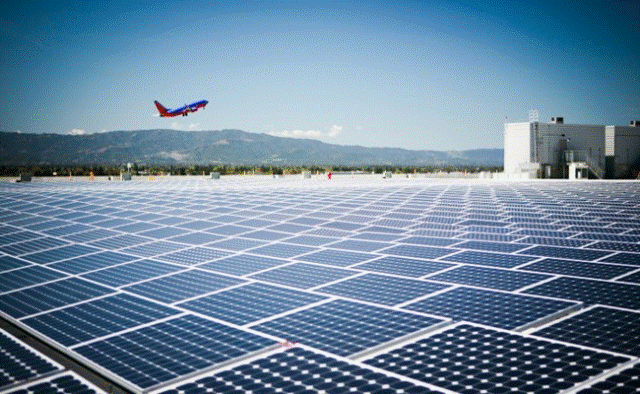

Solar power in India is a fast growing industry. The World Bank has described India as having “among the best conditions in the world to capture and use solar energy.” The country's solar installed capacity reached 20 GW in February 2018. According to the Institute for Energy Economics and Financial Analysis (IEEFA), India doubled solar capacity in 2017-18 and is rapidly upscaling capacity to strive towards achieving 100 GW of solar by 2022. As part of India's ambitious solar program, the central government has set up a $350 million fund and the Yes Bank has committed to loan $5 billion to finance solar projects.
Let us now move beyond figures and statistics. I saw an interesting YouTube feature on India’s thrust on solar energy Powered by Solar. The first part of this was about India’s first solar-powered train; and the second part is about Cochin International Airport in Kerala - the first fully solar-powered airport in the world. India also has a wholly 100 percent solar-powered railway station in Guwahati, Assam. India's first and the largest floating solar power plant was constructed at Banasura Sagar reservoir in Wayanad, Kerala.
The first solar-powered train in India, which is pulled by a diesel-powered locomotive, has been launched on New Delhi’s suburban commuter railway system, with the routes for the rest of the new trains to be decided soon. The new 1,600 horsepower Diesel Electrical Multiple Unit (DEMU) trains are fitted with 16 solar panels on each carriage as well as battery back-ups. The 7,200kw of energy created each year by the solar panels will be used to power internal lights, fans and other electrical systems on the train coaches. Each solar-panelled coach will reportedly offset carbon emissions by nine tons a year, which is expected to save around 21,000 litres of diesel, translating to approximately $18,640 (Rs.1.2 million) per year. This has been described as a “path-breaking leap” towards the goal of making India’s trains more environment-friendly. The solar panels last for up to 25 years and will be inspected regularly.
The rooftop solar system was developed by Noida-based Jakson Engineers, under the direction of the Indian Railways Organization for Alternate Fuels.

Cochin International Airport became the first fully solar-powered airport in the world with the commissioning of the 13.1 megawatt (MW) photovoltaic power station. It is the fourth-largest airport in the country in terms of passenger traffic and requires about 48,000 units of electricity per day. This will make the airport “absolutely power neutral”- it can create as much energy as it consumes. The plant comprises 46,150 solar panels spread across 45 acres of land (equivalent to 25 football fields) in the cargo complex of the airport. The plant generates about 50,000-60,000 units of electricity per day, which is more than adequate for the airport’s requirement.
Construction of the solar plant cost CIAL about $10 million; but with the daily electricity consumption by the airport, this amount will be recovered in a short span of time. The solar panels are expected to last for about 25 years; so the airport has two decades of significant savings based on this plan, plus the added benefit to the environment. CIAL also plans to sell the surplus energy produced from the plant back to the local electricity utility: Kerala State Electricity Board (KSEB).
Research reveals that over the next 25 years, the solar plant will avoid 300,000 tons of carbon emission from coal-fired power plants. This is equivalent to planting 3 million trees or not driving 750 million miles in a fossil-fuel burning car. Besides saving money, the solar plant will significantly reduce global warming by producing greener and cleaner energy.


